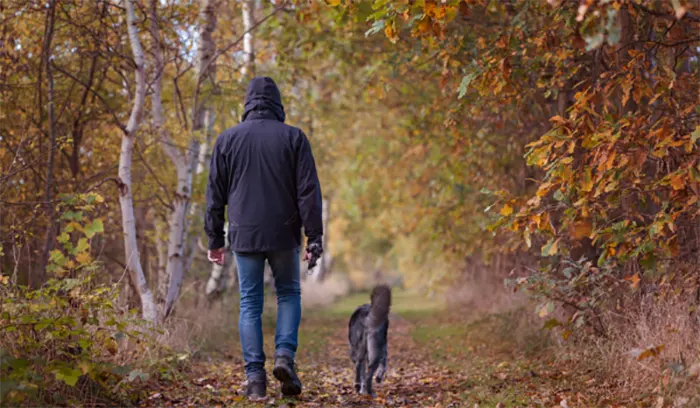As we travel into these darker months, with shorter days, often less sunlight and a piercing coldness, those winter blues can creep in. Perhaps this is a result of less social interaction or time spent outdoors, but it might also be the challenge of struggling with lower energy levels.
Many people find they have low energy in winter and this can affect productivity, leading to frustration and a feeling of underachieving. When we’re low on energy we’re also less inclined to do those things that keep us well – socialising, exercise, spending time in nature and eating well.
Having low energy in winter may be fleeting – a week of adjustment as the new season establishes itself. It may happen towards the end of the season when we’re just really fed up with being cold and are beginning to crave the sunshine. Unfortunately, some experience low energy for almost the whole season – and it’s a long one. The good news is, there are plenty of ways to tackle this.
So, let’s look at some of the things we can do to beat the blues and boast our energy, immunity and wellness in winter –
Get your Daily Dose of Vitamin D – Both Ways!
Vitamin D – it’s hard to come by in the UK. Small amounts can be found in oily fish, red meat, mushrooms, eggs and some fortified foods but nowhere near as much as we need. Most of the vitamin D we make – yes, the body creates it – is produced from direct sunlight through the skin. Yet, the NHS advises that between October and early March we do not obtain enough direct sunlight to produce a sufficient quantity of vitamin D.
Vitamin D is important for bone health as this is the nutrient key to keeping bones healthy. Children and elderly people are particularly at risk and can develop conditions, including rickets and osteomalacia if vitamin D is severely lacking. This is because vitamin D has been found to support –
- Maintenance of bones and teeth
- Normal muscle function
- Normal function of the immune system
Vitamin D depletion can be a cause of low energy in winter months and many people opt to supplement. In fact, both the the NHS and the UK government advise everyone consider taking a daily vitamin D supplement during the autumn and winter.
In winter months there’s far less direct sunlight. We’re also often wrapped up to protect against the cold which means there’s little exposed skin to take in this precious nutrient when we are outdoors, which is why it’s worth considering supplementing Vitamin D. However, taking vitamin D as a supplement does not mean getting outside becomes unimportant. Even a little sun exposure is good for us – and not just because of vitamin D.
Sunlight increases serotonin which can cause an uplift in mood, aid in regulating bodily functions and reduce feelings of stress and fatigue thereby creating the conditions for improved sleep. So put on the coat, gloves and hat to keep you warm but get out into the winter sunshine as often as you can.
Solo Nutrition provides Vitamin D3 2000 IU to support wellness and our Vitamin D supplements are vegan, gluten, sugar and dairy free.
Keep Yourself Healthy In Winter
As soon as winter sets in we’re on high alert for those pesky winter bugs, especially those of us with children who seem to be magnets for coughs and colds in the colder seasons. Whilst it can be tempting to spend more time indoors, it’s not the cold that brings on colds. Colds are a virus and viruses actually spread more easily indoors which is one of the reasons we’re more susceptible to illness in winter. It’s also true that colder weather can weaken resistance to illness because our bodies are using energy to keep warm. Therefore, we need to do all we can to support our overall health in winter.

Eating well is very important. Opt mostly for whole foods that are purer in nutrients and don’t contain additives, additional salt, sugars and high levels of saturated fats. Choose natural foods and plan your meals so they contain a variety of food groups – carbohydrates, proteins, iron, natural fats and plenty of fruits and vegetables. Traditionally, those in colder climates – especially in the UK – have sought out stodgy meals high in basic carbohydrates (like white rice, pasta and potatoes) and fatty meats. But this was when we lived a more outdoors and physically laborious lifestyle. In our modern lifestyle, we need to up our vitamin C and that comes from fruits and vegetables – so get as many of those as you can.
Unfortunately, due to modern farming and the pressure food growers are under to produce food at low cost for large populations, the soil our food grows in lacks the nutrients it once had. Use of pesticides kills off not only that which harms crops but also depletes the goodness in the soil. The variety of plants and wildlife that fuelled ecosystems and made our soil so nutrient-rich has been diminished. According to an analysis by NRM, two-thirds of the country’s agricultural soils show signs of degradation. That’s not to say that plant-based food is not still good for us but it can mean it’s not all as good for us as it used to be.
Vitamin C in Winter Months
There is also concern over reduced levels of vitamin C in our fruits and vegetables, meaning it can be difficult to get the amount we need. The vitamin C, we get in our diet has many health benefits which are particularly important during winter, including –
- Contributing to the reduction of tiredness and fatigue
- Maintenance of the normal function of the immune system
- Aiding the protection of cells from oxidative stress (caused by free radicals and toxins such as pollution)
Vitamin C may not be able to prevent the contraction of viruses but since it harnesses the body’s ability to fight infection it can help to reduce the severity and potentially even kill off viruses before they take hold. The part it plays in supporting our immune system is integral, especially during colder months when our bodies are using significant resources to keep us warm and we may be more naturally susceptible to illness and feelings of fatigue.
So, whilst it is important to eat well, it can be useful also to supplement vitamin C to ensure we are getting the proper levels needed to gain the full benefits of this essential nutrient.

Winter Exercise
The other very simple way to stay well in winter is to exercise – in whatever way works for you. Do dance classes if they make you happy, yoga if that boosts your wellness, or go for daily runs if that spikes your adrenaline and keeps you fit. Every body is different but if you push your body just a little every day it will get stronger, and this is good for the heart, the bones and muscle strength and growth. Keeping fit when energy levels are low is super challenging. Actually, it’s probably the last thing you’ll want to do. Weirdly though, it’s the absolute best thing you can do. Exercise doesn’t just burn energy, it increases energy in the long term. It also does wonders for our mental health.
When we are physically well, our brains get healthier too and are better able to control chemical release and balance hormone production. Everything that exercise provides fuels health in every season, but it is particularly valuable in winter months when maintaining wellness can be more challenging.

Get out in Nature To Increase Energy In winter
The beautiful British countryside has had a great many poems written about it. Perhaps, most famously, Wordsworth who, ‘wandered lonely as a cloud’ before reaching a hilltop where he was greeted with a ‘host of golden daffodils’. He goes on to reflect how later, when ‘in vacant or in pensive mood’, he would recall the ‘bliss of solitude’ and how his ‘heart with pleasure fills’ when he thinks of those daffodils. This is more than a lovely classic poem, it encapsulates how being amongst nature can fuel our happiness, even for some time after the actual experience. And science supports this too.
Research shows that being outdoors more often can contribute to combatting feelings of depression. It can ground us, fuel creativity and reduce stress. In winter months, though, it can be difficult to get outdoors. Many of us struggle with the cold – numb toes and chattering teeth – and it’s the UK so it’s often raining too. Going outside isn’t exactly tempting – not like turning up the heating and settling into the sofa to gorge on a Netflix series. Still, it’s so important for our physical and mental health. Besides, the crisp winter air can do much to awaken our senses and burn energy which actually stimulates us and helps us become more productive in the daytime and achieve better sleep at night.
We’re not all lucky enough to live in places where Wordsworth-worth views are on our doorsteps but most of our cities have parks, some of us are fortunate enough to be close to the sea or at least a river and even planting and nurturing flowers for a windowsill can make a big difference. A little beauty every day can do wonders for our wellbeing. But don’t just take my word for it – leading mental health charity Mind advocates spending time in or with nature to support mental and physical health too.
Lastly, stay social because we are not hibernating creatures. We need human interaction to fulfil us and keep well.





